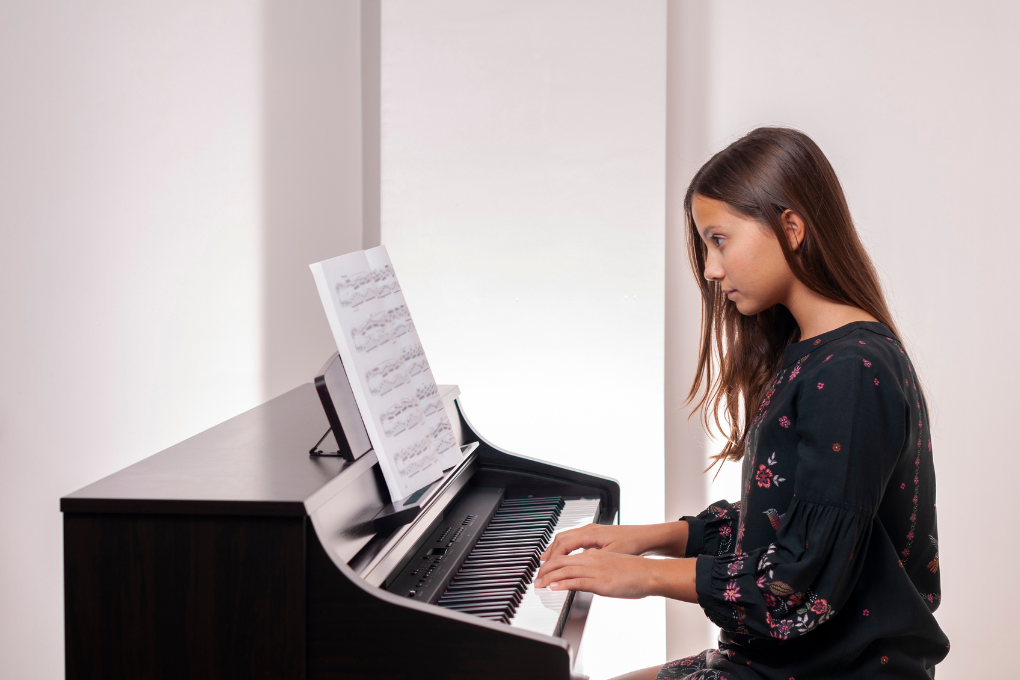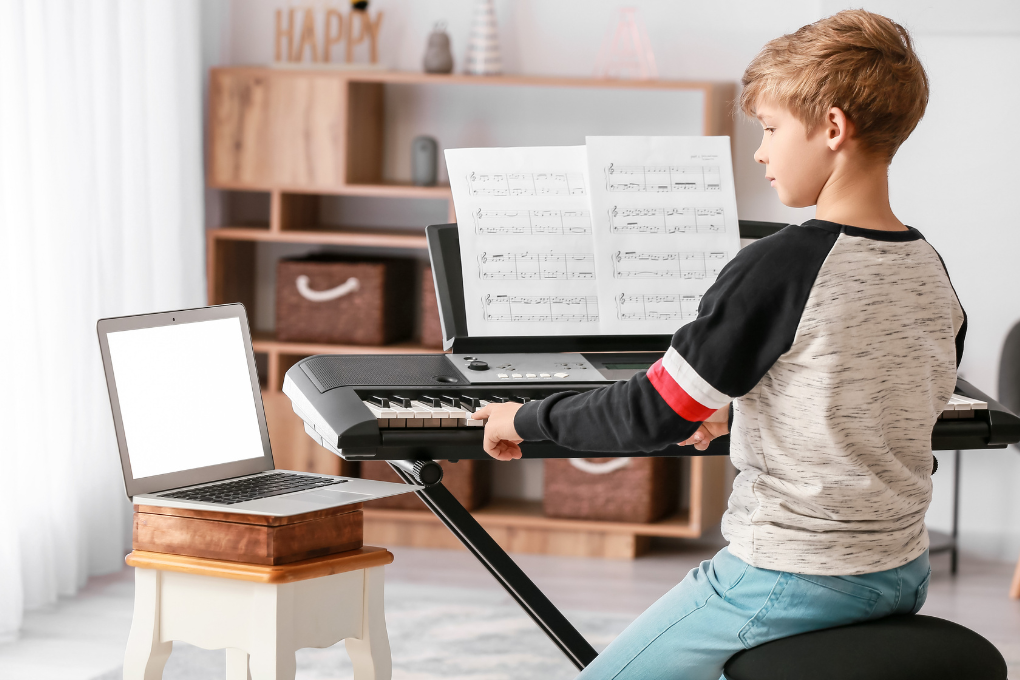To provide your child with a holistic education, music lessons should be part of their education. Learning piano offers numerous cognitive and emotional advantages over time. First and foremost, children learn to focus and concentrate – which are skills they will carry throughout their lives.
Improves Coordination & Motor Skills
Kids need to concentrate to get things done, whether that be painting, reading, or homework. Piano lessons offer an effective way to hone focus and concentration skills as well as learn time management – as practice sessions must take place daily and lessons need to fit around other obligations.
Learning piano provides children with a foundation for understanding other musical instruments as well. Children quickly transition between piano lessons and voice lessons, guitar, trombone, or anything else later. Furthermore, its layout of keys makes learning music theory even easier!
Studies have demonstrated the benefits of piano study on cognitive and intellectual abilities, including spatial-temporal reasoning and math skills. Children studying piano are reported to recall 20% more vocabulary words than non-musicians. Furthermore, studying piano can lead to greater emotional expression through music as they understand how it feels to express emotions through sound.
Develops Emotional Intelligence
Playing piano teaches children to control their emotions constructively. By channeling feelings such as sadness, joy, anger, frustration, and anxiety into musical expressions that soothe or excite them, this emotional intelligence fosters resilience while improving self-esteem and happiness.

Kids also develop socially through music. Through performances for family, friends, and strangers alike, musicians are adept at conveying emotion with their music – an integral component of social development that allows for meaningful interactions with other people.
Piano lessons teach children how to manage difficult emotions and set long-term goals while simultaneously developing patience and discipline – essential life skills. Students often become more self-assured after mastering a new song or performance and experiencing the thrill of receiving warm applause from an audience; this boost of self-confidence gives children a healthy sense of pride while showing them that anything they set their minds to can be accomplished!
Encourages Creativity
Music has long been seen to help foster creativity and problem-solving skills. Playing piano allows children to access areas of their brain that might otherwise go unused – helping them to be more adaptable and creative in other aspects of their lives as well.
Sitting down for weekly piano lessons also requires kids to become more self-reliant. They need to listen attentively and respond in a timely manner when their teacher speaks, which can serve as an excellent opportunity to teach children the value of listening and accepting feedback in all areas of life – including schoolwork, intimate relationships, and professional interactions.

Encourage creativity among your piano students by teaching them to improvise. Give a short rhythm on the piano (four to eight notes are ideal) and ask them to respond by playing the same rhythm back to you. Vary rhythms with faster or slower notes as well as add pauses for an added challenge!
Helps Develop Listening Skills
Music lessons help students develop listening skills that will carry over into all aspects of life – from sports and school to work and careers. Learning piano requires a consistent practice routine that teaches kids to focus and follow a schedule while at the same time providing meaningful activities instead of mindlessly scrolling social media or watching television.
Piano lessons provide children with an essential skill – reading music – which enables them to play any piece of music they desire. Other musical instructors may skimp on music theory instruction in favor of teaching muscle memory techniques which may prove more difficult for some children to grasp when dealing with complex pieces that require multiple layers of memorization.
Piano lessons give children a sense of achievement. Hearing their parents and teachers applaud after performing an intricate song they’ve been practicing is truly rewarding for all involved.
